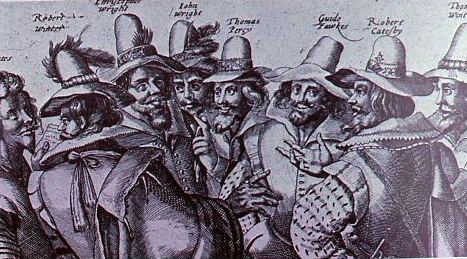
Soon, after the discovery of the Gunpowder Plot, Parliament legislated for an annual commemoration of the Catholic Plot. The date was chosen as it was the anniversary of finding Guy Fawkes with a lantern next to piles of barrels of Gunpowder on the occasion of the State Opening of Parliament, 5th November 1605.
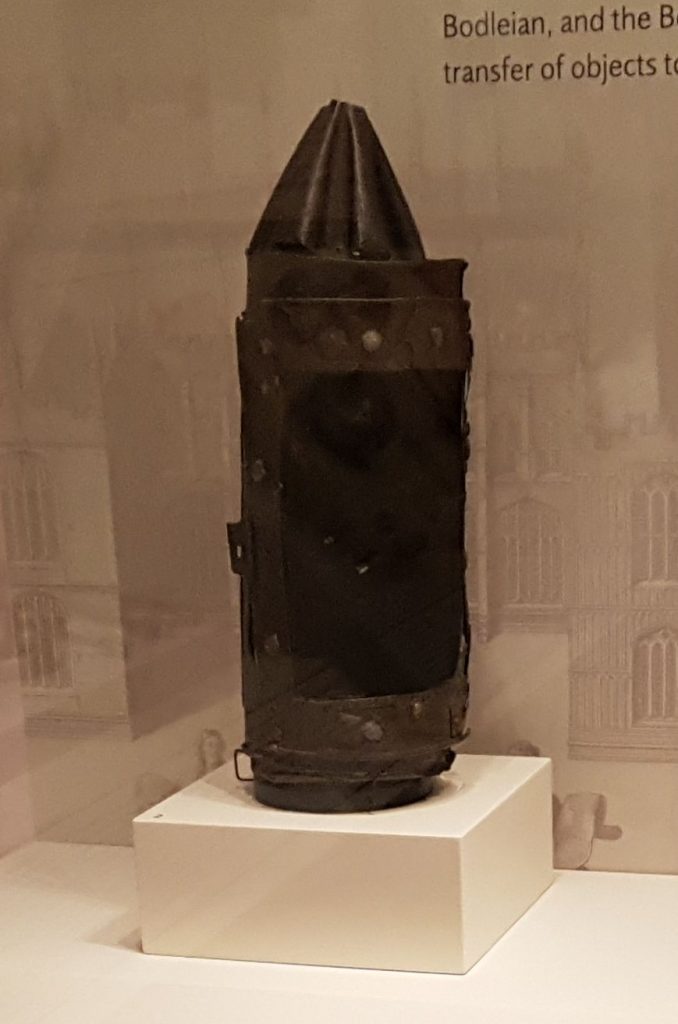
The Ashmolean Lantern was given by Robert Heywood in 1641, and he got it from his brother, Peter, who was a Westminster Magistrate who was among the party who arrested Guy Fawkes in the cellar. Peter Heywood, took the lantern from Guy Fawkes to stop him setting fire to the pile of gunpowder barrels. Or at least that is the story Robert Heywood told.
A commemoration of fireworks and bonfires was clearly appropriate given that it has been estimated that the amount of gunpowder in the barrles would have killed the king, the Royal Family, the House of Lords and the House of Commons and devastated a huge area around Westminster. But some suggest that the nature of the commemoration draws some elements from Halloween – use of bonfires and dressing up. Halloween was frowned upon by puritans, but they supported Guy Fawkes Day as it was anti-catholic.
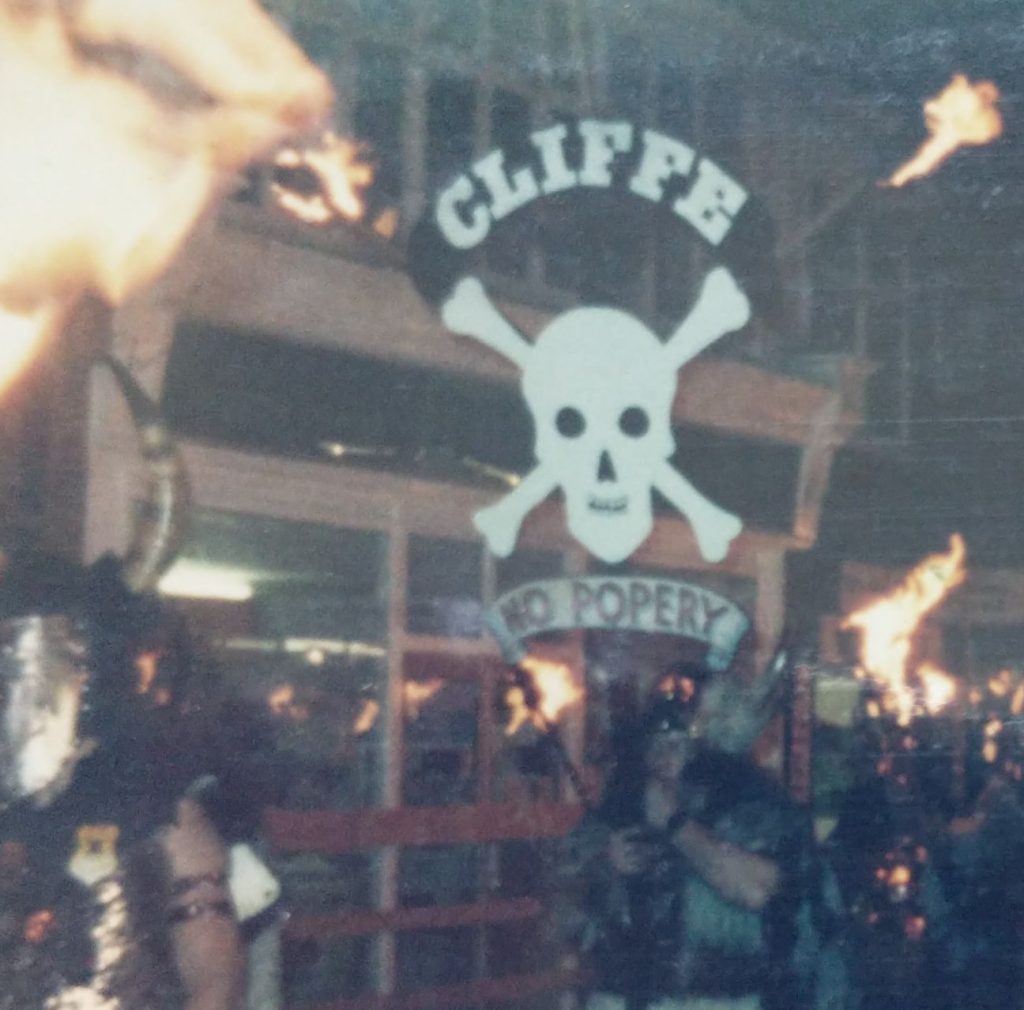
The anti-catholic nature of the celebration is a fact, but it really isn’t something we think about today. There is little anti-Catholic prejudice in Britain (except in certain places). Irish friends are amazed we still celebrate it, but for the vast majority of people in Britain it is really just Fireworks night, nothing to do with anti-catholic sentiment.
Traces of the original anti-catholic nature of it do continue in places like Lewes, which is one of the most traditional Fireworks Nights. This consists of clubs who organise a parade through the town, and then the burning of an effigy of the Pope and, more recently, other unpopular figures on the contemporary scene. Click here for more on Lewes.
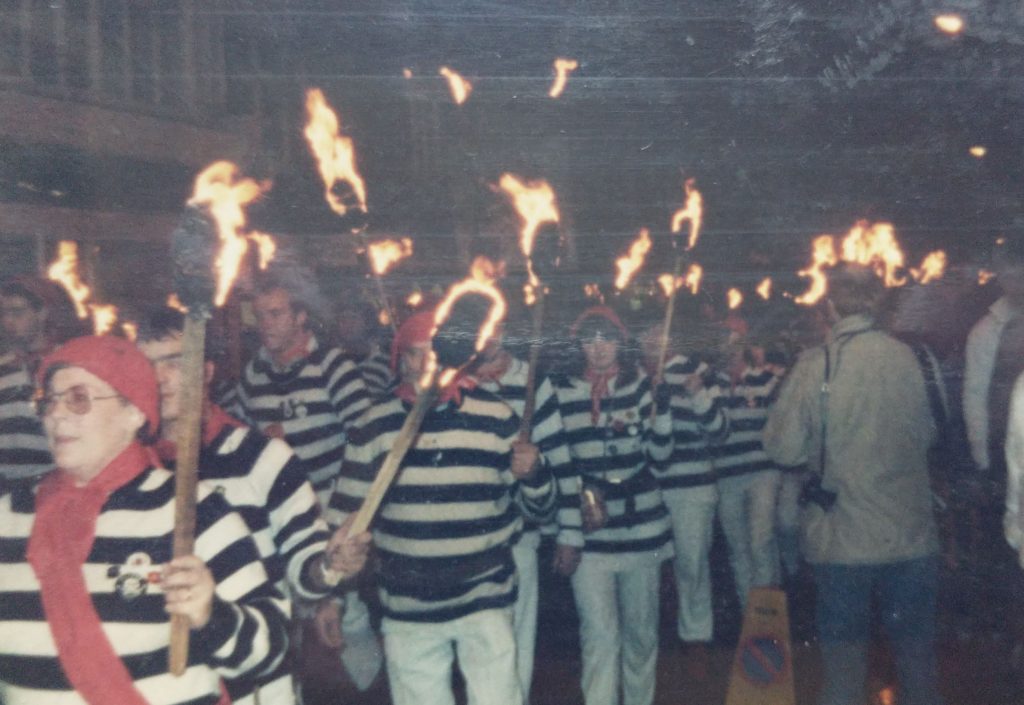
Ottery St Mary continues the tradition of using Tar Barrels. These are wooden barrels in which tar and tinder are set on fire. The Barrels are either rolled through the Town, or down a hill, or, as in Ottery, carried on the shoulders of volunteers (see video below). This has a pedigree which goes back before 1605 as there are references to tar barrels and displays in Protestant processions to celebrate the accession to the throne of Edward VI and Elizabeth 1
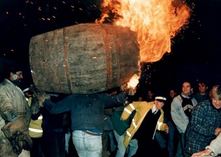
Discovering the Plot
King James 1 took credit for discovering the plot as he is said to have deciphered the warning given in a letter, written to William Parker, 13th Baron Morley, 4th Baron Monteagle at his house in Hoxton, London (commemorated by a plaque in Hoxton Street near where I live) which warned against turning up at Parliament but was not explicit as to the nature of the threat.
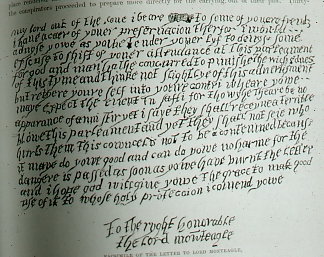
My lord, out of the love I beare to some of youere frends, I have a care of youre preservacion, therefore I would aduyse you as you tender your life to devise some excuse to shift youer attendance at this parliament, for God and man hath concurred to punishe the wickedness of this tyme, and thinke not slightly of this advertisement, but retire yourself into your country, where you may expect the event in safety, for though there be no apparance of anni stir, yet I saye they shall receive a terrible blow this parliament and yet they shall not seie who hurts them this cowncel is not to be contemned because it may do yowe good and can do yowe no harme for the dangere is passed as soon as yowe have burnt the letter and i hope God will give yowe the grace to mak good use of it to whose holy proteccion i comend yowe.
James realised this sentence: ‘they shall receive a terrible blow this parliament and yet they shall not seie who hurts them ‘ implied an explosion. His father, Lord Darnley, was killed in a Gunpowder Plot in Edinburgh, so perhaps he was particularly attuned to the threat. On the other hand, there is a possibility that the King’s Secret Service were aware of the plot and arranged matters, so the King could receive the credit for its discovery.
The Fifth of November
Remember, remember!
The fifth of November,
The Gunpowder treason and plot;
I know of no reason
Why the Gunpowder treason
Should ever be forgot!
Guy Fawkes and his companions
Did the scheme contrive,
To blow the King and Parliament
All up alive.
Threescore barrels, laid below,
To prove old England’s overthrow.
But, by God’s providence, him they catch,
With a dark lantern, lighting a match!
A stick and a stake
For King James’s sake!
If you won’t give me one,
I’ll take two,
The better for me,
And the worse for you.
A rope, a rope, to hang the Pope,
A penn’orth of cheese to choke him,
A pint of beer to wash it down,
And a jolly good fire to burn him.
Holloa, boys! holloa, boys! make the bells ring!
Holloa, boys! holloa boys! God save the King!
Hip, hip, hooor-r-r-ray!
First published 5th November 2021, revised 2024

Burning the pope in effigy still legal?
I took those grainy pictures years ago, but, according to Wikipedia…..
Crawley News. Retrieved 15 April 2015. “Cliffe Bonfire Society still marches under the No Popery banner and they also burn the Pope” but not the current one the one in 1605.
So, yes still doing it but not with any feeling of Anglo-Catholicism.
17 Protestants were burned at the stake during the reign of Mary 1. Its a huge number for a small town like Lewes.London lost over 50.
I didn’t know that the Gunpowder plot was a Catholic plot..
In France, teachers only mention it as Guy Fawkes plot to blow up the Parliament.
Terrible times then too…
5 years later, in 1610, Henri IV was killed by Ravaillac, a Catholic mystic.
Henry IV survived the ‘ massacre de la Saint Barthélemy in 1572 and became a Catholic to be king of France.
Hence his famous words: ‘Paris vaut bien une messe’
French not being so hot that means ‘Paris is worth a mass?” but isn’t messe a meal?
A messe is a religious office for Catholics.
The word has no other meaning in French…
But it can be used symbolically to describe big gathering with speeches delivered to reinforce the appartenance to a group ( political or other).
We then speak of a ‘grand messe’
So I can’t say ‘that is another fine messe you have got me into, Stanley?’
No!
Messe has nothing to do with the English word ‘mess’
Sorry,it was a feeble English joke refereing to Laurel and Hardy.
Here is a showreel of their stuff, and the catch phrase was ‘That’s another fine mess you have got me into’
https://www.youtube.com/watch?v=W3qcj2MzPYc
It means ‘fair’ in German
yes, still a big dealin the UK and my birthday!
But maybe it was mentioned by the English teacher and for some reason i didn’t register it!
A teacher admitting to not listening? Surely not!